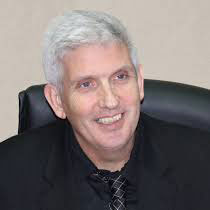KTDRR and Campbell Collaboration Research Evidence Training: Evidence Gap Maps and Other Innovative Reporting Strategies
About the Webcast
The KTDRR Center and the international Campbell Collaboration are working together to offer a five-part training course that focuses on high-quality methods for synthesis of evidence, including the procedures and methods for conducting systematic reviews/research syntheses as well as software, tools, and strategies for analyzing and reporting data. The training materials are developed by representatives of the Campbell Collaboration. Online resources from various national and international organizations will be provided for each session.
The fourth session is a pre-recorded webcast with Dr. Howard White, who discusses strategies other than systematic reviews for reporting data, primarily, evidence gap maps or EGMs. He describes what goes into evidence gap maps and provides a number of examples on the use and usefulness of this strategy and introduces other evidence-based strategies such as toolkits, guidelines, and checklists.
View the Archive
This webcast originally aired on May 15, 2019. The archive is available on YouTube at this link: https://youtu.be/gpFjTx5zBqI.
-
Tips for Optimal Viewing on YouTube:
- To increase volume, turn up the volume on your computer and use the volume bar on bottom left side of the YouTube video window.
- Captioning is available by selecting the "CC" option on the bottom right side of the video window. Click on "Options" to change the font, size, and color of the captions.
- Additional tools on the bottom right side: "Settings" increase the video quality; "Theater mode" (default)/"Full screen."
Presentation materials:
- Download a 508-compliant PDF copy of the slides used during the session: webcast68-051519-508.pdf
- Transcript of the video (MS Word™ DOCX – 397kb)
Evaluation: Please fill out the brief evaluation after viewing the webcast. There are no pre-approved CRC-CEUs for this webcast.
About the Presenter

Howard White, PhD, is Chief Executive Officer of the Campbell Collaboration. He was the founding Executive Director of the International Initiative for Impact Evaluation (or 3ie) and before that led the impact evaluation program of the World Bank's Independent Evaluation Group. He started his career as an academic researcher at the Institute of Social Studies in The Hague, and the Institute of Development Studies, University of Sussex. As an academic he leans toward work with policy relevance, and in his work in the policy field leans toward academic rigor as a basis for policy and practice.
